The Top 10 Performances of 2013
1. Michael Tilson Thomas and the New World Symphony: Mahler’s Symphony No. 4
Another of Michael Tilson Thomas’ late-season Mahler performances with the New World Symphony delivered an evening of rich musical rewards in April, this time in the composer’s graceful Symphony No. 4. While taking the time to appreciate the fine details, Tilson Thomas’s interpretation conveyed a vast, spacious sense of musical architecture, with no interpretive agenda other than allowing the composer’s music to speak. The orchestra’s performance was all you could ask for, with a rich, amber tone, a crystalline transparency in the music of this expert orchestrator, and a touch of humor. On the first half, soloist Christian Tetzlaff joined the orchestra for a fiery performance of the Brahms Violin Concerto, the top concerto performance of the year. (DF)
2. Florida Grand Opera: Levy’s Mourning Becomes Electra
After the opening-night performance at the Broward Center of this turbulent opera by Fort Lauderdale resident Marvin David Levy in November, you could hear vigorous arguments as people debated the merits of the plot, the music and the singing. How often does that happen? Florida Grand Opera clearly took a risk in opening its 2013-14 season with this 1967 American opera – witness the empty seats that would have been occupied if they had started with Madama Butterfly. But the company’s new general director and CEO Susan Danis deserves credit for assembling a first-class production, with a commanding performance by soprano Lauren Flanigan, atmospheric sets that intensified the drama, and a surging, spidery score that was given a fine account by the orchestra under conductor Ramón Tebar. (DF)
3. Florida Grand Opera: Verdi’s La Traviata
While the management of FGO deserves credit for newly adventurous programming, the company’s bread-and-butter will continue to be Verdi, Puccini, Mozart and the other celebrated operatic composers. After seasons in which too many productions featured bizarre stage direction and second-rate singing, this April production of Verdi’s La Traviata had it all – great singing from the three principals led by soprano Maria Alejandres, superb work by the orchestra under Ramón Tebar and sets and costumes that brought to life the glamour and decadence of Parisian high society. (DF)
4. Christian Tetzlaff
In a combined recital and chamber music concert at the New World Center in April, Christian Tetzlaff’s awesome technique, patrician musicianship and formidable artistic intellect strongly resounded in two Bach scores for unaccompanied violin, particularly his unhurried majestic journey through the thirteen-minute Chaconne of Partita No. 2. Joined by five members of the New World Symphony, the German violinist also led an earthy rendition of Brahms’ Sextet No. 2. (LB)
5. Michael Tilson Thomas and the New World Symphony: John Cage Centennial Celebration.
In February Michael Tilson Thomas led three nights of exceptional performances marking the avant-garde American composer’s 100th birthday. These wide-ranging concerts not only rose to international standards, but showed the world how such a tribute is done. (Dorothy Hindman)
6. The Academy of St. Martin in the Fields
This terrific March concert at the Broward Center by England’s storied chamber orchestra gave energetic, dramatic accounts of music that is rarely performed on South Florida concert stages. The orchestral music of Haydn and Bach would be much more in demand if audiences could hear performances with the level of grandeur, intensity, nuance and commitment the ensemble showed in Haydn’s Symphony No. 44, Bach’s Piano Concerto No. 1 with soloist Inon Barnatan and Haydn’s Cello Concerto No. 1 with soloist Alisa Weilerstein. There was nothing novel or ground-breaking here—just honest music-making at a very high level. (DF)
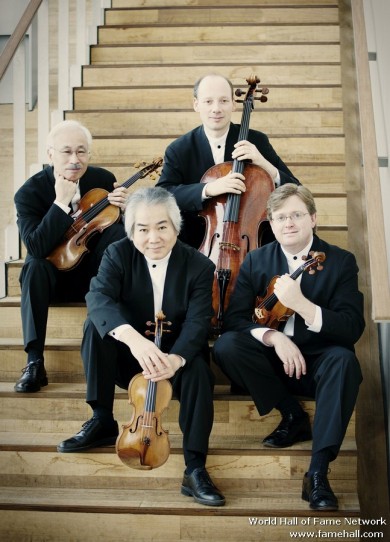
The Tokyo String Quartet. Photo: Marco Borggreve
7. Tokyo String Quartet
A chamber music paragon for over four decades, the Tokyo Quartet displayed their supple, exquisitely blended sonority in a January concert for Friends of Chamber Music, part of the group’s farewell tour. Deeply expressive performances of quartets by Mozart, Bartok and Beethoven by an ensemble going out at their peak transcended the sentimentality and nostalgia that usually accompanies such occasions. (LB)
8. Estonian National Symphony Orchestra
Opening the Regional Arts concert series at the Kravis Center in November, this Baltic ensemble proved itself a world-class orchestra, with lustrous strings, tangy woodwinds and mellow brass creating a distinctive, beautifully balanced sound. Russian conductor Nikolai Alexeev led a gleaming reading of Brahms’ Symphony No. 2 and Tchaikovsky Competition winner Narek Hakhnazaryan offered a fleet, electrifying performance of Dvorak’s Cello Concerto. One of the year’s most pleasant surprises. (LB)
9. Hilary Hahn
One of the most technically accomplished and intellectually daring violin virtuosos, Hahn offered an adventurous, postmodern program at the Arsht Center in February. Eight, specially commissioned encore pieces,(spanning lyricism and minimalism to country fiddling) alternated with stylish, period-infused Bach and Corelli and emotionally charged Faure. Even her encore was unconventional—one of five New Pieces (2009) by Ukrainian iconoclast Valentin Silvestrov. Cory Smythe was Hahn’s versatile keyboard accompanist. (LB)
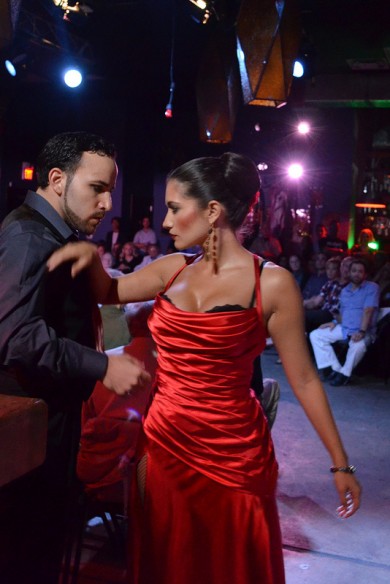
Catalina Cuervo and Jeremias Masseda in FGO’s club staging of Piazzolla’s “Maria de Buenos Aires.” Photo: Alejandra Serna
10. Florida Grand Opera: Maria de Buenos Aires/Tango
The first of FGO’s new “Unexpected Opera in Unexpected Places” presentations offered an arresting double-bill of Robert Xavier Rodriguez’s satirical pastiche Tango and Astor Piazzolla’s Maria de Buenos Aires, a blend of poetic magical realism and sultry nuevo tango rhythms mixed with jazz. Presented in March at The Stage, a popular bar and pop music venue on the periphery of the Miami Design District, the pairing was inventively staged by Jose Maria Condemi, well sung, and idiomatically conducted by Ramon Tebar. A harbinger of welcome repertoire expansion under FGO general director Susan T. Danis. (LB)
HONORABLE MENTIONS
Osmo Vänskä’s powerful, revelatory Sibelius Second Symphony with New World; Seraphic Fire’s world premiere of Gregory Spears’ audacious completion of the Mozart Requiem; the 18-year-old pianist Conrad Tao’s surprisingly mature and dignified performance of the Beethoven piano concertos with Symphony of the Americas; Seraphic Fire’s impassioned staging of Purcell’s Dido and Aeneas; Florida Grand Opera’s imaginative productions of Mozart’s Magic Flute and impressively sung performance of Bellini’s La Sonnambula, Ángel Romero’s graceful, atmospheric performance of Rodrigo’s Concierto de Aranjuez with the Miami Symphony Orchestra. (DF)
Garrick Ohlsson’s masterful performance of Beethoven’s Concerto No. 4 and a lustrous Symphonie Fantastique with Franz Welser-Most and the Cleveland Orchestra; Peter Lieberson’s sensuous Neruda Songs, sung by dusky-voiced Elizabeth DeShong with the Cleveland Orchestra; Dmitri Hvorostovsky’s superb recital featuring rare Rachmaninoff songs for Judy Drucker’s Great Artist Series; Valentina Lisitsa’s marathon three-and-one-half-hour recital for Friends of Chamber Music, mixing poetry and bravura in equal measure; Michael Tilson Thomas and the New World Symphony’s unconventional Viennese program (Schoenberg, Berg, Fitzenhagen, Schumann) and Mozart marathon (including the entire first Act of the unfinished opera Zaide); Seraphic Fire’s program of chant, effectively staged in darkness. (LB)
DISHONORABLE MENTIONS
Florida Grand Opera for inflicting a distinctly third-rate second cast on paying customers in Verdi’s La Traviata; Joshua Bell and the Cleveland Orchestra for phoning in a flabby, underpowered performance of the Beethoven Violin Concerto. (DF)
Philippe Entremont’s technically maladroit performance of Brahms’ Piano Concerto No. 1 with the Miami Symphony; The Philadelphia Orchestra’s stolid performances of Liszt and Brahms under the plodding direction of Rafael Fruhbeck de Burgos; Giancarlo Guerrero’s lackluster reading of Beethoven’s 9th Symphony with some surprisingly sloppy playing from the Cleveland Orchestra. (LB)
MOST IMPROVED PERFORMANCE
After ragged performances of symphonies by Mahler and Brahms in 2012, the Miami Symphony rebounded impressively. Under the musically incisive direction of Eduardo Marturet, the orchestra gave well-coordinated, smoothly professional performances of major works by Wagner, Elgar and Brahms and a festive, Miami-accented version of a Viennese New Year’s concert. (LB)
MOST IMPROVED PROGRAMMING
In recent seasons Festival Miami, the University of Miami Frost School of Music’s flagship series has emphasized pop and jazz concerts over classical performances. The classical side took a much more prominent role in the festival’s thirtieth anniversary edition. Well-rehearsed performances and interesting programming with an admirable emphasis on contemporary music restored much of the festival’s luster. Michael Daugherty’s luminous song cycle Labyrinth of Love was a high point in a riveting performance by soprano Hila Plitmann, superbly conducted by Gary Green. (LB)
MOST PROMISING DEBUT
Brett Karlin made an impressive bow as artistic director of the Master Chorale in November with a program honoring St. Cecilia, the Patron Saint of Music. Karlin achieved finely blended choral sonorities and crisp articulation from both choir and orchestra. Hopefully he can bring some stability to an organization that has seen a revolving door of conductors in recent years. (LB)
GRACE UNDER PRESSURE AWARD
When the tenor called in sick for Miami Lyric Opera’s production of Carmen, artistic director Raffaele Cardone had to scramble to find a replacement. He found one in James Charles Taylor, who barely made it in from Washington, D.C., where flights were delayed by snow, and went on after one dress rehearsal. No one expected Taylor to produce a flawless performance as Don José and he didn’t, but he got through the evening creditably and saved the day. (DF)
MOST PROMISING NEW ARTISTS
Russian baritone Alexey Lavrov, a member of the Metropolian Opera’s Lindemann Young Artist Program, gave notice that he is a future star in the making with his May recital for Friends of Chamber Music. Lavrov’s dark, sizable voice and charisma is perfect for the Verdi baritone repertoire.
And Canadian composer Zosha Di Castri inaugurated the New World Symphony’s joint commissioning program with the San Francisco Symphony and music publisher Boosey and Hawkes, offering young composers hands-on experience working with major orchestras and conductors. Di Castri’s Lineage for Orchestra displayed a real gift for instrumental color and fusion of folk and contemporary classical traditions. (LB)
DISTINGUISHED ACHIEVEMENT AWARD
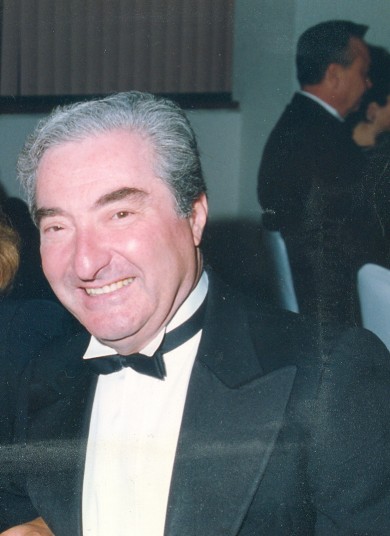
Raffaele Cardone
Ten years ago Raffaele Cardone founded Miami Lyric Opera. Producing many of the popular standard repertoire operas, Cardone has occasionally ventured outside his audience’s comfort zone to presents such rarities as Mascagni’s L’Amico Fritz and Arrieta’s Marina. Despite often skeletal staging, Cardone’s productions have placed admirable emphasis on strong, exuberant singing and productions that have respected the composer’s wishes with realistic dramatic staging, devoid of trendy updates or gimmicky revisionist concepts.
The double bill of Puccini’s Il Tabarro and Gianni Schicchi, presented in July, was Cardone’s finest offering yet. Consistently fine singing and vivid staging were enhanced by higher production values and orchestral playing—a weak element in previous MLO productions—was much improved under the astute direction of Doris Lang Kosloff. Cardone has created an alternative opera company that has greatly enriched vocal offerings for South Florida audiences. (LB)
Posted in Articles
2 Responses to “The Top 10 Performances of 2013”
Leave a Comment
Wed Dec 18, 2013
at 3:05 pm
2 Comments
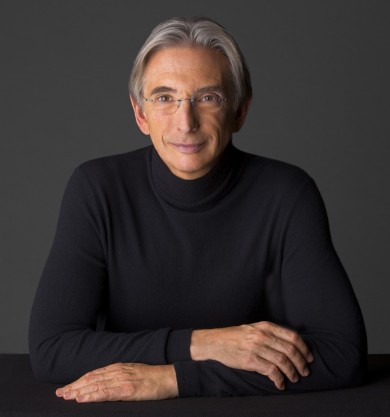
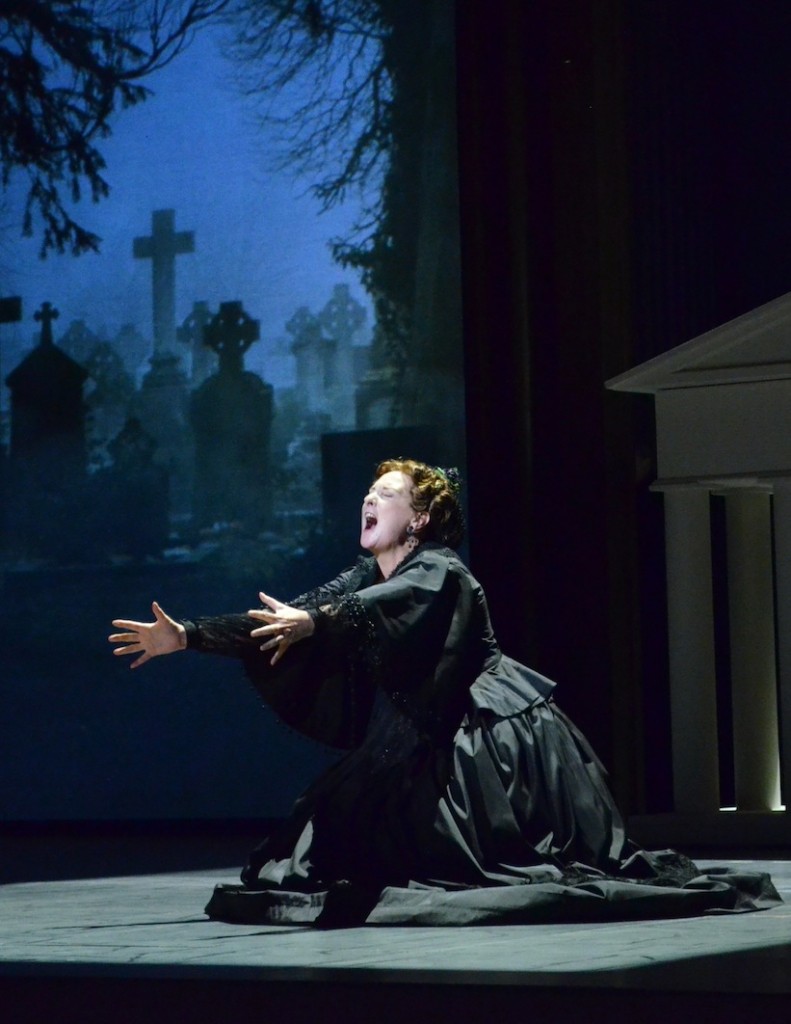
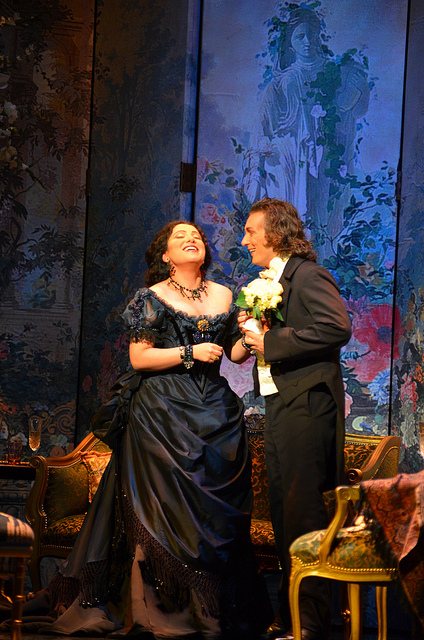
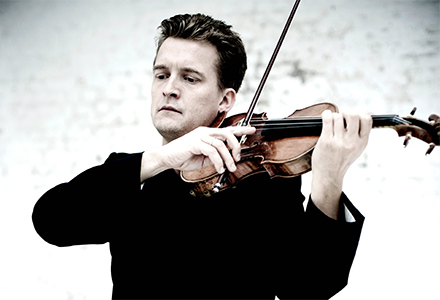
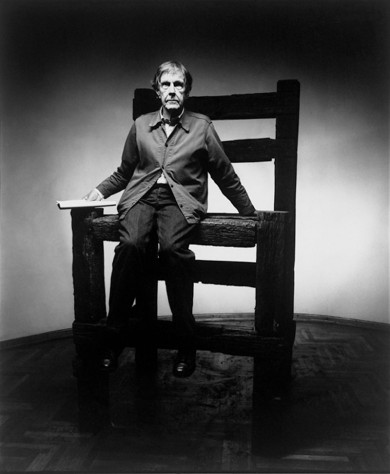
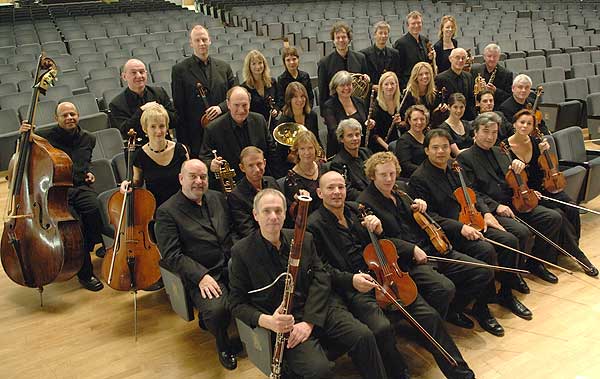
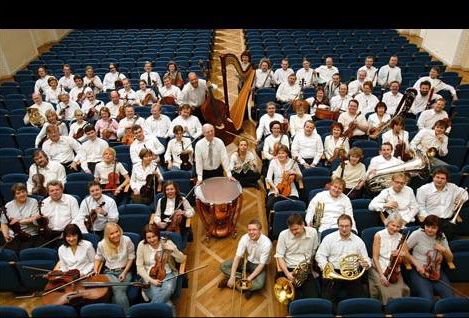
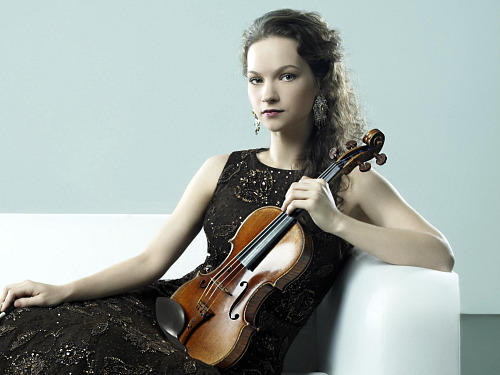







Posted Dec 21, 2013 at 3:27 pm by JULIO V RODRIGUEZ
Congratulations to Bret Karlin, our fantastic new choir director. Also, to Maestro Raffaele Cardone for his great achievements and for presenting young new singers to our audiences.
Posted Dec 30, 2013 at 6:58 am by Jeff Welch
Having worked under Brett Karlin at his previous post in Tampa, I had no doubt he would quickly make a name for himself in the South Florida area. Congratulations Brett!